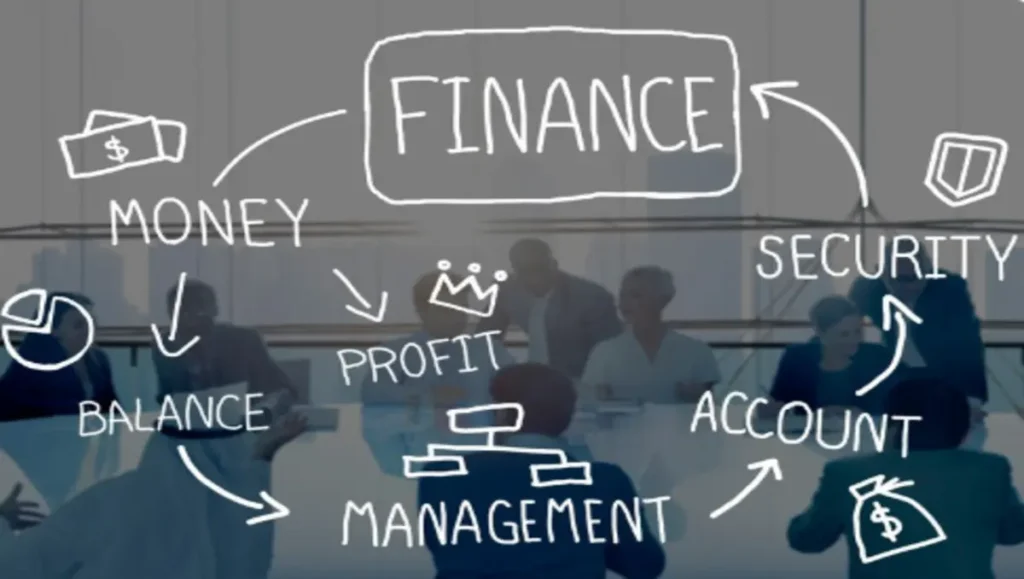In today’s fast-paced world, managing personal finances can feel like navigating a maze without a map. We often find ourselves juggling multiple responsibilities: paying bills, saving for the future, investing, planning for retirement, and ensuring we don’t fall into debt. It’s a complex process, and without proper knowledge and guidance, it can be overwhelming. This is where a Certified Financial Planner (CFP) steps in to provide direction, clarity, and expertise.
Whether you are just starting your financial journey or looking to optimize your wealth management strategy, a Certified Financial Planner can be your trusted guide. But who exactly is a CFP, and how can they help you build a secure financial future? Let’s dive into the concept, process, and the human aspect behind becoming a certified financial planner.
What is a Certified Financial Planner (CFP)?
A Certified Financial Planner (CFP) is a professional who has the expertise and qualifications to assist individuals and families in managing their finances. The CFP designation is awarded to financial professionals who have met strict educational, ethical, and experience requirements. More importantly, they must pass a rigorous exam that covers various areas of personal finance, including retirement planning, investment strategies, tax laws, estate planning, and insurance.
In simple terms, a CFP is a financial expert who is committed to guiding individuals toward making informed, wise financial decisions. They aim to create customized financial plans tailored to their clients’ unique goals, risk tolerance, and life situations.
The Role of a Certified Financial Planner
A Certified Financial Planner does much more than simply help you save money. They offer a comprehensive approach to managing your financial life, considering short-term goals and long-term aspirations. Here’s what a CFP typically does:
1. Understanding Your Financial Goals
The first step in working with a CFP is a thorough discussion of your financial goals. A CFP listens to your needs, priorities, and dreams. They will ask questions such as:
- What are your short-term and long-term financial goals?
- Are you planning to buy a house, send your children to college, or travel the world?
- Do you plan to retire early or want to accumulate a certain amount of savings for retirement?
By understanding your financial goals, a CFP can begin to design a personalized financial plan that aligns with your desires and resources.
2. Creating a Comprehensive Financial Plan
Once your goals are established, the CFP will create a detailed financial plan. This plan addresses all aspects of your financial life, including:
- Budgeting: Helping you track income and expenses to manage your money efficiently.
- Debt management: Strategies for paying off debt, whether it’s student loans, credit card debt, or mortgages.
- Savings strategy: Establishing emergency funds and saving for future needs like education or homeownership.
- Investment planning: Developing an investment portfolio that matches your risk tolerance and financial goals.
- Retirement planning: Ensuring you’re on track to retire when you want, with enough funds to sustain your lifestyle.

3. Guiding Investment Decisions
One of the most significant responsibilities of a CFP is helping you make informed investment decisions. They’ll evaluate your risk tolerance, financial objectives, and market trends to design an investment strategy that fits your unique situation. This might include:
- Choosing stocks, bonds, and mutual funds.
- Allocating assets based on your risk profile.
- Rebalancing your portfolio over time to maintain your desired asset allocation.
4. Navigating Tax Planning
Taxes play a huge role in your financial planning process. A CFP can help you minimize your tax liability by identifying tax-efficient investment strategies, recommending tax-deferred retirement accounts, and utilizing tax deductions effectively.
5. Planning for Retirement
Retirement planning is one of the most crucial aspects of financial planning, and a CFP excels in this area. They can help you:
- Estimate how much you’ll need to retire comfortably.
- Choose the best retirement accounts (e.g., 401(k), IRA).
- Advise on Social Security benefits and pension options.
- Make adjustments to your plan as needed based on your changing goals.
6. Estate Planning
Planning for the distribution of your assets after your death is an essential part of a financial plan. A CFP works with estate planners to help you create wills, trusts, and other legal documents that ensure your assets go to your beneficiaries according to your wishes.
7. Continuous Monitoring and Adjustments
Your financial plan is not static. Life events like marriage, having children, career changes, or health issues can all impact your finances. A good CFP will regularly review your financial situation and make adjustments to your plan as necessary to ensure you remain on track.
The Human Concept Behind Financial Planning
A significant but often overlooked aspect of working with a Certified Financial Planner is the human concept. While financial planning might sound like a purely technical endeavor, it’s very much about people—their hopes, dreams, challenges, and the realities they face. Here’s why the human aspect is crucial in financial planning:
1. Building Trusting Relationships
Personal finances are deeply personal, and discussing them requires trust. A good CFP builds a relationship based on trust, ensuring that you feel comfortable sharing your financial situation, goals, and even mistakes. When you work with someone you trust, it becomes easier to be honest about your goals, fears, and any obstacles standing in your way.
2. Understanding Emotional Factors
Money is often tied to emotions—fear, anxiety, excitement, or even guilt. A CFP helps you navigate these emotions and make decisions that align with your long-term well-being, rather than reacting impulsively to short-term market fluctuations or emotional spending.
3. Providing Peace of Mind
Life can be unpredictable, and having a plan for financial security can bring peace of mind. By working with a CFP, you’ll be able to reduce financial stress and feel more confident in your ability to meet your goals. This sense of financial security can lead to a more fulfilling life, free from the constant worry of whether you’re making the right financial decisions.
4. Adapting to Changing Life Circumstances
As life changes, so do your financial needs. A human-centered CFP understands that your financial goals will evolve over time. They will adapt your financial plan to meet those changing needs, ensuring you remain on track no matter what life throws at you.

Why Should You Work with a Certified Financial Planner?
You might wonder why it’s worth hiring a Certified Financial Planner instead of trying to handle your finances on your own. Here are some reasons why working with a CFP can be invaluable:
1. Expertise and Knowledge
CFPs are highly trained professionals who possess in-depth knowledge of complex financial topics. Whether it’s tax laws, investment strategies, or retirement planning, they have the expertise to help you navigate these areas with ease.
2. Personalized Financial Planning
A CFP doesn’t offer one-size-fits-all solutions. They take the time to understand your unique situation and goals, providing you with a customized financial plan designed to meet your needs.
3. Long-Term Focus
A Certified Financial Planner is dedicated to your long-term financial success. They focus on helping you make decisions that will benefit you in the years to come, rather than simply addressing short-term concerns.
4. Accountability
When you work with a CFP, they hold you accountable for your financial decisions. They ensure you stay on track, helping you make adjustments as needed to ensure you reach your financial goals.
5. Peace of Mind
Finally, a CFP provides peace of mind. By knowing that a financial expert is guiding your decisions, you can focus on other aspects of your life, confident that your finances are in good hands.

Conclusion
A Certified Financial Planner is more than just a financial expert—they are a trusted partner in helping you navigate life’s financial complexities. By understanding your goals, guiding your investment decisions, and ensuring you have a plan in place for every stage of life, a CFP provides you with the tools you need to secure a bright financial future.
Remember, financial planning is not just about numbers—it’s about people and the dreams they want to achieve. By working with a CFP who values the human side of financial planning, you’ll be better equipped to face life’s challenges and embrace the future with confidence.
So, take that first step today. Meet with a Certified Financial Planner, and start building the financial security and peace of mind you deserve.https://chatgpt.com
What is a Certified Financial Planner (CFP)?
- A Certified Financial Planner (CFP) is a financial expert who provides guidance on managing personal finances, including retirement planning, investments, taxes, debt management, and estate planning. They hold a recognized certification that requires education, experience, and successful completion of a rigorous exam.
Why should I hire a CFP instead of managing my finances on my own?
- A CFP brings specialized knowledge and experience in managing complex financial matters, helping you create a personalized plan that aligns with your goals. They help you avoid costly mistakes, offer expert investment advice, and ensure you’re prepared for life’s unexpected changes.
What services do CFPs provide?
- CFPs help with:
- Budgeting and debt management
- Saving for short-term and long-term goals
- Investment strategies
- Retirement planning
- Tax-efficient strategies
- Estate planning and insurance
- Regularly reviewing and adjusting your financial plan
- Budgeting and debt management
How does a CFP help with retirement planning?
- A CFP helps estimate how much you need to retire comfortably, recommends suitable retirement accounts (like 401(k)s and IRAs), advises on pension and Social Security benefits, and ensures you are on track to meet your retirement goals.
What are the benefits of working with a CFP?
- A CFP provides:
- Expert financial knowledge and guidance
- A personalized financial plan
- Long-term focus on your financial goals
- Accountability and monitoring of your progress
- Peace of mind, knowing a professional is managing your financial strategy
- Expert financial knowledge and guidance

How do I know if I need a CFP?
- If you have specific financial goals, are planning for retirement, have complex investments, or need assistance with managing your finances during major life events (such as marriage, children, or career changes), a CFP can provide significant value.
What’s the difference between a CFP and other financial advisors?
- A CFP holds a prestigious certification, ensuring a high level of education, ethical standards, and comprehensive financial planning knowledge. Other financial advisors may have different qualifications, but they might not specialize in all areas of personal finance.
How much does a CFP charge for their services?
- The cost of hiring a CFP can vary. Some charge hourly rates, while others may work on a flat fee or percentage of assets under management. It’s important to discuss fees upfront to ensure their services fit within your budget.
How often should I meet with my CFP?
- Ideally, you should meet with your CFP at least once a year to review your financial plan. However, it’s also a good idea to schedule meetings after significant life changes such as a marriage, the birth of a child, a career shift, or retirement.
Can a CFP help me with estate planning?
- Yes, a CFP works alongside estate planners to help you create wills, trusts, and other necessary legal documents to ensure your assets are distributed according to your wishes.https://financekhush.com

1 thought on “ Certified financial planner :a simple guide ”